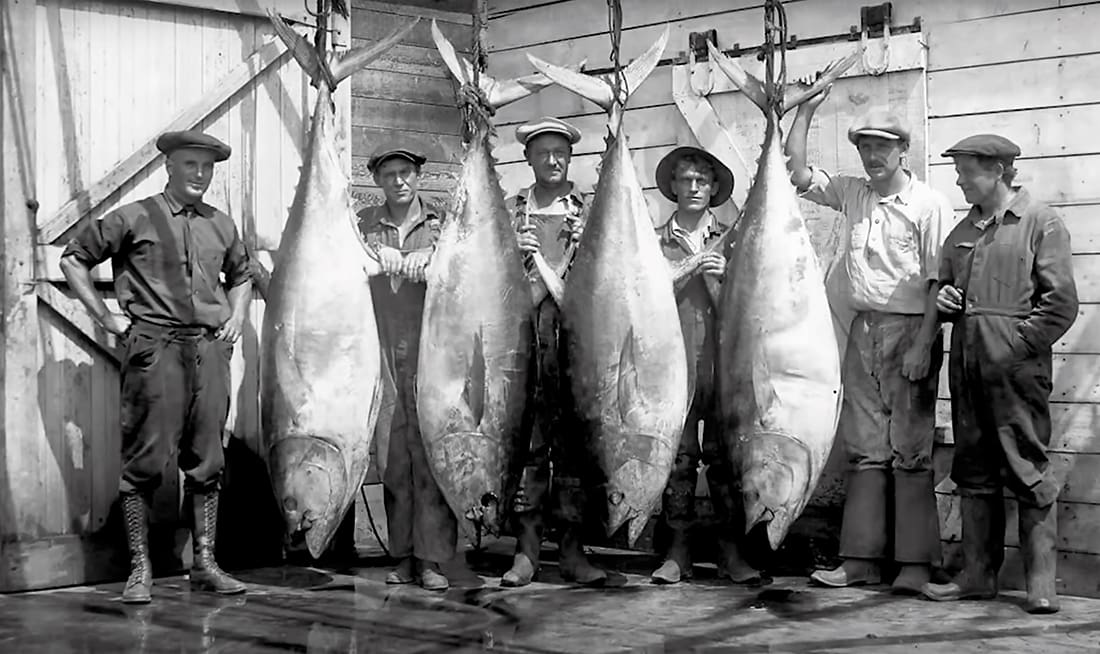San Pedro is a town built by people who weren’t afraid of rolling up their sleeves, working hard, and getting dirty.
Be it whaling, moving cargo, building ships, commercial fishing, or canneries, the industries that provided the blue-collar jobs are part of who we are and why San Pedro became such a close-knit community.
The Smell of Money: The Story of the Fishing and Canning Industry of the Los Angeles Harbor Area is a short historical documentary directed by San Pedro native and award-winning filmmaker Jack Baric and Director of Photography Noah Todd. It was commissioned by the Port of Los Angeles as advocated for by Commissioner Anthony Pirozzi, Jr. and produced by Public Relations Representative Leigh Smith along with Associate Producer Augie Bezmalinovich.
The documentary contains many photos and footage from the San Pedro Bay Historical Society and San Pedro families Bogdanovich, Castagnola, Laraneta, Mardesich, and Olguin. It was a who’s who of San Pedro lineage.
The film is a celebration of the history and evolution of the fishing and canning industries, their contributions to the region’s economy, and the impact on the war effort in feeding GIs fighting overseas in World War II. The film depicts the move from sardines to tuna, the development of canning technologies, and how tuna would become an important staple in the American diet.
When the whistle blew at 9 a.m., thousands of workers made their way to Terminal Island via car, bus, and ferry. Immigrants from Italy, Croatia, Portugal, Greece, the Philippines, and Japan came to San Pedro for a better life and worked side by side at the canneries. The smell of tuna was all over San Pedro.
Locals got used to it because as bad as the buses might stink after a shift, the money didn’t stink. While primarily men were out to sea catching the fish, mostly women were at the canneries processing tuna. This meant many families had two solid incomes to prosper and thrive. Some of these jobs were among the first to provide single mothers with a livable wage to raise their families.
Canned tuna was pioneered here in San Pedro. It involved steaming the fish white and packaging it in oil to remove the “fish” taste. It was marketed as an affordable chicken substitute with iconic characters like the mermaid with the jingle, “Ask any mermaid you happen to see…what’s the best tuna? Chicken of the Sea!” Star-Kist’s hip tuna who never made the cut, Charlie Tuna (“Sorry, Charlie!”), and “Yum, yum, Bumble Bee, Bumble Bee Tuna.”
The early days of the canning operation were infused by a small group of Japanese abalone farmers who brought innovative longlining with bamboo pole fishing techniques to catch tuna. Larry Fukuhara spoke about the contributions of the Japanese fishermen before the war response to Pearl Harbor forced them into internment camps. When the war was over, they returned to find their homes had been taken and everything they owned was gone.
The introduction of purse seiner boats with large fishing nets was a game changer and led to harvesting tuna in quantities that allowed for a boom in fishing. Adding ice and refrigeration to ships and trains allowed Martin Bogdanovich to change the industry by increasing the time ships could spend at sea and the range of where tuna could be brought in for processing.
Baric’s film mixes interviews with many of the children and grandchildren of San Pedro’s fishing families with Mark Karmelich, John Zuanich, Stephanie Mardesich, Anthony Misetich, Yvonne Bogdanovich, Ron Laraneta, and Belia Olguin Smith to tell the story of sardines, tuna, cannery innovations, fishing techniques, and what led to the decline of the industry here in San Pedro.
I absolutely loved the good, the bad, and the stinky history of the San Pedro fishing and canning industries depicted in this film. I hope it becomes something shown in San Pedro middle school classrooms and is required viewing for everyone moving to San Pedro.
Watch The Smell of Money: The Story of the Fishing and Canning Industry of the Los Angeles Harbor Area below or at PortofLosAngeles.org. spt







Comments